Pete Sutton's Blog, page 8
January 7, 2021
2020: A reading year
I am a bit late on posting my 2020 round up (for a variety on non-interesting reasons) but here it is.
I read 166 books (which is up on 2019 but below my 2017 all time record of 210 books)
I categorised 12 as “Brilliant” (the right book at the right time) which is a higher percentage than last couple of years. Particular recommendations would be:
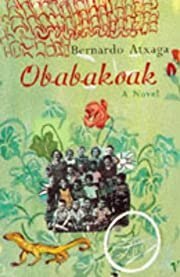
Obabakoak by Bernardo Atxaga
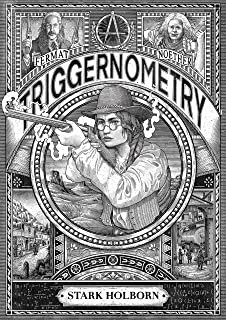
Triggernometry by Stark Holborn
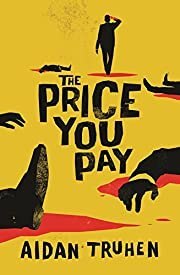
The Price You Pay by Aidan Truhen
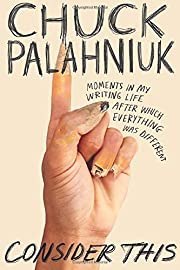
Consider This by Chuck Palahniuk
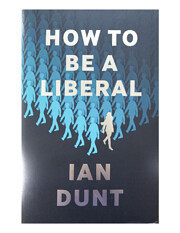
How to be a Liberal by Ian Dunt
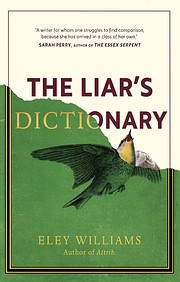
Liar’s Dictionary by Eley Williams
and
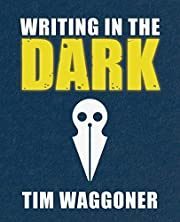
Writing in the Dark by Tim Waggoner
26% of books read were by women – which is more than last year, but obviously still not enough!
I read books from authors from 19 different nationalities.
I aim this year to read more books off the shelves and to buy less books – but last year that was abetted by lockdowns and lack of conventions and litfests and if we get back to normal later this year and there are cons and I can visit bookshelves then that resolution may go out the window…
January 5, 2021
Interview with Tej Turner
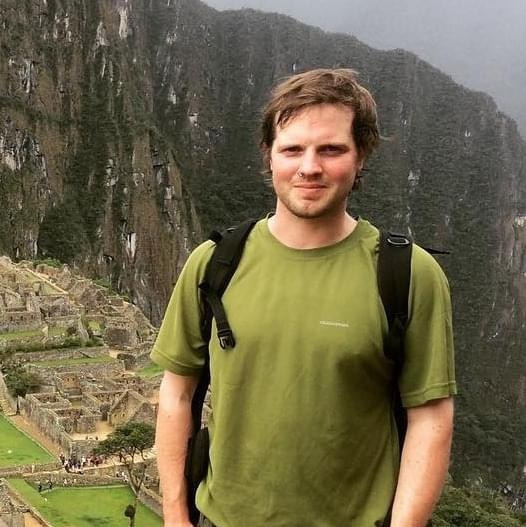
I spoke to Tej about his new book: Bloodsworn
“Everyone from Jalard knew what a bloodoath was. Legendary characters in the tales people told to their children often made such pacts with the gods. By drawing one’s own blood whilst speaking a vow, people became ‘Bloodsworn’.
And in every tale where the oath was broken, the ending was always the same. The Bloodsworn died.”
It has been twelve years since The War of Ashes, but animosity still lingers between the nations of Sharma and Gavendara, and only a few souls have dared to cross the border between them.
The villagers of Jalard live a bucolic existence, nestled within the hills of western Sharma and far away from the boundary which was once a warzone. To them, tales of bloodshed seem no more than distant fables. They have little contact with the outside world, apart from once a year when they are visited by representatives from the Academy who choose two of them to be taken away to their institute in the capital. To be Chosen is considered a great honour… of which most of Jalard’s children dream.
But this year the Academy representatives make an announcement which is so shocking it causes friction between the villagers, and some of them begin to suspect that all is not what it seems. Just where are they taking the Chosen, and why? Some of them intend to find out, but what they discover will change their lives forever and set them on a long and bloody path to seek vengeance…

Publisher Link:
Bloodsworn
Tell us about your book (what’s the sales pitch?)
Bloodsworn starts like a lot of medieval epic fantasy stories do; a handful of characters from a rural setting – some of whom are coming of age – find themselves swept up into a series of world-changing events. But during its narrative, many tropes which are usually associated with that premise are broken and the story takes a grim turn, becoming something darker.
It is a novel which will simultaneously feel familiar to readers but often surprise them.
If you could be a character in the book who would you be and why?
I think most of my characters have a piece of me within them… but none of them are completely me. Out of the main cast of this series, Jaedin is probably the one I have the most in common with though.
Do you have a set writing process, if so what is it?
I type almost everything.
The only time I write anything by hand is once the first draft is finished: I print it out and grab a red pen. If I see anything which doesn’t feel right, I scribble it out and write in the margin how I will make it better. I am quite brutal during this stage, and will often massacre entire paragraphs and restructure entire pages.
Then, I open up a new Word document and write the entire chapter again. From scratch. Using my annotated print-out of the first draft as notes.
This is how I create my second drafts. From there, all future refining is done on screen.
What’s one question you think would be really fun to answer, but has never been asked of you?
If I could live for a week in the setting of a mythological tale/cycle, which one would it be?
And my answer would be the Mabinogion; a collection of 12th-century Welsh folktales thought to be descended from oral tradition. There is something about its setting (in medieval rural wales, but filled with gods, heroes and mythical creatures) which is enchanting.
What made you choose to write your book as an epic fantasy?
Epic fantasy is one of my favourite genres. It is the one my parents introduced me to when I was young, and I continued to read into my adulthood. I have always had a very active imagination so it was only natural that when I started to create my own stories they would be in that genre.
With this particular novel, I would say that it wasn’t just epic fantasy that I was inspired by though. It is quite dark and gory, and it has mutant beings and other weird creatures in it; some of these things are more reminiscent of horror and Japanese anime than typical epic fantasy.
How much research did you do before writing the book and how did you go about it?
Because this story takes place in my own imaginary second world, it was more of a case of brainstorming than research. I have studied history (both at College/University level, and in my spare time) and I did draw upon some of my knowledge of medieval cultures for some of my inspiration, but I also had to conceptualise a whole new map, timeline, and mythos – as well as a plethora of cultures which inhabit this world and were shaped by these things.
Another bit of research I had to do (which is probably a little unusual for medieval-age fantasy settings) was some astrophysics. The world Bloodsworn and its sequels takes place in has three moons, and this has consequences for their nocturnal activities, knowledge of astronomy and, most importantly, their nautical tides.
Do you remember the first story you told? What was it?
My debut novel was called The Janus Cycle. It was a contemporary, semi-biographical coming of age story with elements of surrealism. It was a hard novel to categorise, so we (my publisher and I) eventually settled upon ‘gritty and surreal urban fantasy’. That description sometimes gives people the wrong impression of its themes though (it doesn’t contain many of the usual novums people associate with that genre, such as vampires). I am very proud of it, and almost everyone who has picked it up has enjoyed it, but it has been a difficult novel to market at times.
What are you reading? Who do you think we should be reading?
I am currently reading Blood Song by Anthony Ryan.
My answer to that question is usually this; more books published by indie presses.
I am not saying that in any way to diss books published by the ‘Big Five’… most of them are great too, of course, but the thing about indie books is that it is easier to miss them if you don’t put an effort into seeking them out because they don’t have anywhere near the same level of advertising (and other routes to exposure) behind them as books published by the bigger imprints. There are some real gems out there in the indie presses – they often take more risks, and pave the way – but yet, they can be easily missed.
In one sentence what’s your best piece of advice for writers?
For new/aspiring authors my main advice would be this; when you are first starting out and you finish your first novel, put it aside for at least a year and then look at it again before you consider it ready. You will probably know better ways to refine it and do that story better justice after that. I made the mistake of submitting things before they were ready, early in my journey to becoming a writer, and it set me back a bit in terms of publishers/agents I could submit to later down the line.
Bio
Tej Turner is a writer of fantasy and science fiction. His debut novel The Janus Cycle was published by Elsewhen Press in 2015 and its sequel Dinnusos Rises was released in 2017. Both of them were described as ‘gritty and surreal urban fantasy’. He has also had short stories published in various anthologies.
He has since branched off into writing epic fantasy and has a novel called Bloodsworn due for release in 2021. The first in his ‘Avatars of Ruin’ series.
Tej Turner has spent much of his life on the move and does not have any particular place he calls ‘home’. For a large period of his childhood, he dwelt within the Westcountry of England, and he then moved to rural Wales to study Creative Writing and Film at Trinity College in Carmarthen, followed by a master’s degree at The University of Wales Lampeter.
After completing his studies, he moved to Cardiff, where he works as a chef by day and writes by moonlight. He is also an intermittent traveller who every now and then straps on a backpack and flies off to another part of the world to go on an adventure. So far, he has clocked two years in Asia and a year in South America. He hopes to go on more and has his sights set on Central America next. When he travels, he takes a particular interest in historic sites, jungles, wildlife, native cultures, and mountains. He also spent some time volunteering at the Merazonia Wildlife Rehabilitation Centre in Ecuador, a place he hopes to return to someday.
Find out more about Tej and his books on his website or follow him on Twitter @tejturner
If you’re an author and have a book coming out and would like a signal boost – go here for details on how to appear on this website
December 22, 2020
A Tiding of Magpies Reissued
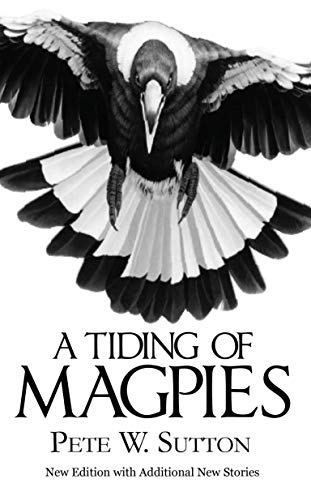
The Reissue of my first collection – A Tiding of Magpies – will be published on the 3rd of January. It’s available to preorder here (preorder for the paperback coming soon)
I’ve added a new afterword, there are some new stories and the whole book has had a re-edit and has been spruced up.
My new collection – The Museum for Forgetting – is in edit and will be released in 2021 too. I’ve also written two novellas this year for a game tie in (announcement still under wraps) with a novel in the same world due to be delivered to the publisher next year.
December 18, 2020
Writing About Writing About Writing Review 14
Part 14 of an intermittent series where I read or re-read the writing books on my shelf to see if they’re worth keeping. See previous part here
As I discussed last time I moved onto How to Story books reading books on story structure and storytelling
First up was The Writer’s Journey by Christopher Vogler
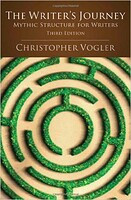
This takes Joseph Campbell’s Hero Journey and describes how you, as a writer, could use the archetypes and stages on that journey as a structure for story. I liked the section on archetypes but I have an issue with the Hero myth in that it’s pretty toxic (a topic for a post perhaps). Also Vogler shoehorns some stories that are obviously not built on the Hero myth and in the process makes his argument weaker – there’s also some New Age guff in here that seemed out of place. In the end I don’t think it’s very useful for me. I know others who highly rate it though. I also have the sneaking suspicion that despite Star Wars being a very successful use of this structure if you write to a formula you’re in danger of writing something formulaic.
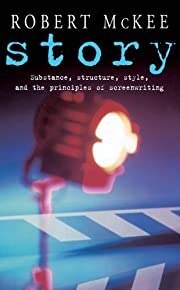
This is altogether more useful than the Vogler book (imho) and yet I dislike McKee’s voice. Here’s a snippet from my review back in 2013: “Mckee has some strong views about films and he’s not going to let you learn about the nuts and bolts of story without beating you over the head with those views every chance he gets. European cinema? Load of rubbish, last 20 years of cinema? Load of rubbish, Hollywood & Asian cinema? The only people who can make “proper” films i.e. films that tell stories properly.” – I went into it remembering that I hadn’t liked it but thought the info was useful. I liked it a bit more than on first read (maybe due to low expectations) but I do feel this book could be shorter, more pithy and use more consistent examples to illustrate the points being made. But saying all that McKee does give you some very useful information indeed. It’s obviously skewed to screenwriting though. This one stays on the shelf.
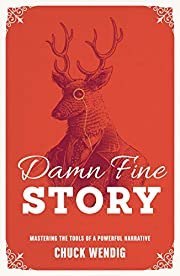
This next book by Chuck Wendig is on storytelling and isn’t skewed towards any medium – in fact Wendig is at pains to point out that a story can be told without words. This has lots of useful stuff inside too and as an adjunct to McKee it’s complimentary rather than contradictory. Wendig, unlike McKee has a very engaging voice and you can see yourself meeting him in a bar and laughing along with his witticisms and anecdotes. But in common with other Wendig writing books I’ve read (and this may just be a personal thing) I find that although his edutainment style makes the pages skip past I find it very hard to recall that information afterwards. It is full of useful advice and staying on my shelf so I can remind myself with re-reading.
One I skim read was Narrative Design
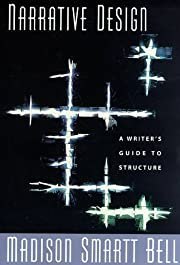
This is a collection of stories that Bell analyses wrt plot, character, tone, point of view, dialogue, symbolism, and design. It’s teaching by example rather than telling you how to achieve good storytelling. Bell posits two main structures for short form fiction – linear and modular and shows using the examples in the book the strengths and weaknesses of various approaches. I found some of the content extremely useful, other content not at all useful and the stories are very hit and miss but overall it’s a worthwhile book and survives to be placed back on the shelf.
I’m currently reading Meander, Spiral, Explode by Jane Allison which also examines alternative structures for story. And after that I have a couple of books on cognitive science and storytelling and Story Trumps Structure. But that’ll be a review after Christmas.
In other news my first collection – A Tiding of Magpies – will be reissued on 3rd January, which is my birthday. I’ll do a post on that once I have links etc.
Drop a comment with your favourite writing book or tip here or email me via the Contact page. If you’re a publisher or Indie Author and would like me to review your writing book drop me a line!
December 10, 2020
Interview with Loren Rhoads
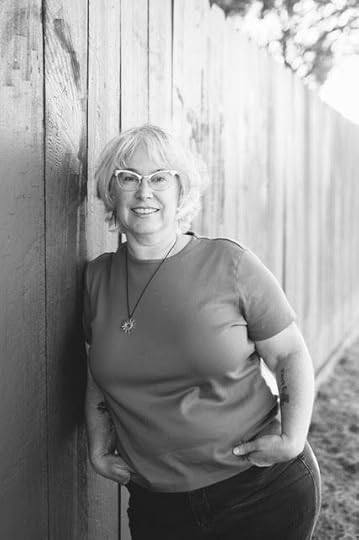
Tell us about your book (what’s the sales pitch?)
In the first full-length collection of her edgy, award-winning short stories, Loren Rhoads punctures the boundaries between horror, dark fantasy, and science fiction in a maelstrom of sex, drugs, and rock-n-roll. Ghosts, succubi, vampires, the Wild Hunt, and the worst predator in the woods stalk these pages, alongside human monsters who follow their cravings past sanity or sense.
If you could be a character in the book, who would you be and why?
I would want to be Violet in the story “Here There Be Monsters.” After she escapes the ghosts and monsters in the story, she has a really fascinating future ahead of her. I’m curious where that will take her.
What did you learn about writing by writing this book?
These stories were written over decades. “The Magic of Fire and Dawn,” the earliest one, was published originally in 1990. The newest one, “The Arms Dealer’s Daughter,” was published in Space & Time last year. I really love short stories. They’re sort of like balancing rocks: everything has to support its own weight and everything atop it as well. Move one element out of place and it all topples down. It’s easier to see the beauty in small constructions.
Do you have a set writing process, if so what is it?
I like to write longhand in a notebook. There’s something about the physicality of feeling the words in my fingers, arm, and shoulder, about the journey of my hand across the page, that makes magic feel possible. I can write at the computer, but it feels less real to me.
What’s one question you think would be really fun to answer, but has never been asked of you?
I’ve never been asked where the strangest place I’ve ever written has been. I’ve written in tents and hotel rooms, at a picnic table in Golden Gate Park and at café tables in Italy, at bars in New Orleans and in a chapel at a retreat center in Michigan. I’ve written at the Protestant Cemetery in Rome and in the Love Hotel district in Tokyo. I’m always looking for new, even stranger, places to write.
What made you choose to write your book as genre?
I don’t usually sit down to write a horror story or dark fantasy, but science fiction is usually intentional. For me, at least, it’s hard to drift into science fiction. For the horror stories, the literary stories, and the fantasies, the boundaries are fairly permeable. I wander across them all the time. Of course, everything — even the science fiction — has a dark sheen to it, because that’s just the way I am.
How much research did you do before writing the book and how did you go about it?
Different stories needed different amounts of research. I think the story that needed the most research was “Never Bargained for You,” about a succubus who meets a band very much like Led Zeppelin on the eve of their first American tour. I’d been reading the 33-1/3 book about Led Zeppelin IV, which talks a lot about the album’s magical underpinnings. That was my jumping-off point, but then I watched The Song Remains the Same and read about the Laurel Canyon music scene and researched shows at the Whisky a Go Go. It’s the only historical story in the book, so I wanted to get the details right.
I’ve written elsewhere about going to a cadaver lab to research the story “Valentine.” Here’s a link to that, if you’re interested: That was probably the most physically grueling research I did for this book.
Do you remember the first story you told? What was it?
The first one I had published was a Lovecraft pastiche about a cabin in the woods. Before that, I wrote a lot of fanfic. The earliest one of those stories was inspired by Peter Pan when I was a little kid. I wrote fanfic about Dark Shadows, Star Trek, and Star Wars, too.
What are you reading? Who do you think we should be reading (apart from you!)?
I’m reading for the Bram Stoker award nominations now. I’ve just started reading Slay: Stories of The Vampire Noire, edited by Nicole Givens Kurtz. I love vampire stories, so I’m really looking forward to that book.
In one sentence, what’s your best piece of advice for writers?
Ask yourself, “And then what happened?”

Loren Rhoads is the co-author of Lost Angels and Angelus Rose, about a succubus and her angel burning through LA. She’s also the author of a space opera trilogy called In the Wake of the Templars. Her newest book, Unsafe Words, is a collection of short stories.
Loren’s social media:
Website: https://lorenrhoads.com/
Blog: https://lorenrhoads.com/blog/
Facebook author page: https://www.facebook.com/LorenRhoadsAuthor/
Twitter: https://twitter.com/morbidloren
Amazon author page: https://www.amazon.com/Loren-Rhoads/e/B002P905PE/
Automatism Press: http://automatismpress.com/
Purchase links:
Amazon: https://amzn.to/2FjmmuA
Amazon Kindle: https://amzn.to/3h8WAqd
Barnes & Noble: https://www.barnesandnoble.com/w/unsafe-words-loren-rhoads/1137605973?ean=9781735187600
Indie Bound: https://www.indiebound.org/book/9781735187600
Bookshop.org: https://bookshop.org/books/unsafe-words-stories-by-loren-rhoads/9781735187600
December 8, 2020
Interview with A A Abbott
Tell us about your book (what’s the sales pitch?)
Emily is running from the man who’s stolen her childhood. Young DJ Jack rescues her from the streets when he sees a woman in trouble. He doesn’t know Emily’s only 15, and already trapped in a web of lies. It’s a story of love, lies and hope.
If you could be a character in the book who would you be and why?
Cassie, Jack’s sometime girlfriend. She drives a Porsche, she knows what she wants, and she always gets it.
What did you learn about writing by writing this book?
It’s an emotional journey once you’re inside a character’s head. Emily and Jack really go through the mill and I cried as I wrote about them. I cried afterwards, too.
Do you have a set writing process, if so what is it?
I always plot in advance, chapter by chapter, and write a 2 page bio on each of the most important characters. Having written a draft I like, I send it to 30 beta readers to tear apart. I rewrite it, send it to my editor Katharine D’Souza, then rewrite again once I’ve heard from her.
What’s one question you think would be really fun to answer, but has never been asked of you?
Q: What songs have inspired your writing?
A: I really love rock music like the Foo Fighters to get in the mood for writing. Doom-laden tunes from the Sisters of Mercy and Alan Walker got me through the darker passages of BRIGHT LIES. Bouncier beats like Crowded House bring optimism back in!
What made you choose to write your book as a psychological thriller
BRIGHT LIES is a story that hit me in a dream many decades ago. It’s much darker than the vodka wars you’ll read about in my Trail series. I waited until I was ready to write about child abuse in an appropriate way. The book isn’t based on personal experience. However, I’ve been on the periphery of situations which cause sleepless nights when I reflect on them now.
How much research did you do before writing the book and how did you go about it?
I needed to find out about subjects as diverse as DJing, drug-taking, police procedure and child abuse. I have very knowledgeable beta readers, and they helped me out. Because of the pandemic, there were few meetings face to face – it was mostly done by phone and email. I am especially grateful to my ex-police contacts for explaining the help available to victims of domestic violence and sexual abuse – please see the list of contacts in ex-police detective Marie Wright’s guest blog here: Under Clare’s Law and Sarah’s Law, the police will also advise you if you have concerns about a particular individual.
Do you remember the first story you told? What was it?
I can’t recall the first ever, but a saga of a wild woodsman intrigued my younger siblings on 2 years’ worth of car journeys. I would have been about 9 when that started.
What are you reading? Who do you think we should be reading (apart from you!)?
I read many genres. My favourite writer at the moment is fantasy author Guy Gavriel Kay, who really gets you emotionally invested in his characters. In the psychological thriller genre, I love Jo Ullah, Barbara Copperthwaite and Valerie Keogh.
In one sentence what’s your best piece of advice for writers?
Be open to feedback, because it’s the way to make good writing into something magical.
[image error]
Bio:
British crime thriller writer A.A. Abbott (also known as Helen Blenkinsop) loves to escape with an exciting and emotional read, and that’s what she aims to write too. Based in Bristol, she’s also lived and worked in London and Birmingham. All three cities feature in her pacy suspense thrillers. Her latest psychological thriller, BRIGHT LIES begins in North Somerset with a posh art exhibition in Bath. Young Emily meets the man who will change her life and cause her to run away to a squat in Birmingham, work in a nightclub and get further entangled in a web of lies.
To write BRIGHT LIES, Helen has had advice from thirty beta readers on subjects as varied as police procedure, drug abuse, grooming, art, music, DJing and clubbing. She’s grateful to them and to her editor, Katharine D’Souza, for making huge improvements to the story.
Helen’s earlier 5 book Trail series is a lighter read focused on a vodka business. Snow Mountain is a premium vodka made in the former Soviet Union, and its owners have blood on their hands. The saga follows the fortunes of two families running the business and what happens when they fall out with each other and with a London gangster. Glamorous heroine Kat is the girl readers love to hate at the beginning of the series, but by the last book, she has won them over. Book research for the series included prison life, hotel research and vodka. Helen especially enjoyed a tour and tasting with the helpful folk at the Chase Distillery in Herefordshire.
Like 10% of us, many of Helen’s family are dyslexic. While she is not, she wants her books to be enjoyed by readers with dyslexia and visual impairment too. She publishes her thrillers in a Large Print dyslexia-friendly edition as well as standard paperback and Kindle versions. (You can also adjust the font on your Kindle to suit your needs.) Audiobooks are on the cards – watch this space!
Helen likes speaking to book groups, business networks and social circles, and reading thrillers and short stories at live fiction events and on Zoom. If you’re a book blogger, litfest organiser, reviewer or simply adore books, she’d love to hear from you.
Helen is a member of the Alliance of Independent Authors, Bristol Fiction Writers’ Group, and Birmingham’s New Street Authors.
Find out more and get a free e-book of short stories at https://aaabbott.co.uk
Links:
Website https://aaabbott.co.uk/
Blog https://aaabbott.co.uk/blog/
Twitter https://twitter.com/AAAbbottStories
Facebook https://www.facebook.com/AAAbbottStories
Sales link for BRIGHT LIES https://books2read.com/u/3n88GB
BRIGHT LIES is available in Kindle Unlimited, ebook, paperback, Large Print and dyslexia-friendly print.
November 20, 2020
NaNo, NaNo NaNo, NaNo NaNo there’s (Na)No limits
There’s no WAWAW this week as I’ve been trying to keep up with NaNoWriMo wordcounts (spoiler – I’m behind) if you’re doing NaNo then feel free to add me as a buddy – I’m on there as Psutto.
I’ve sent the two novellas for the secret project to the publisher (one was finished using NaNo so it’s been useful, even if I don’t “win”) – with a novel pitch to follow for writing next year. Feedback from beta readers and commissioning editor has been positive which is reassuring.
I’m in the middle of editing a book for Grimbold Books
And my writing group is doing a set of prompts to push members’ productivity.
So it’s all go – although little visibility of the output just yet.
Back to the word mines for me
NaNo, NaNo NaNo, NaNo NaNo there’s NaNo limits
There’s no WAWAW this week as I’ve been trying to keep up with NaNoWriMo wordcounts (spoiler – I’m behind) if you’re doing NaNo then feel free to add me as a buddy – I’m on there as Psutto.
I’ve sent the two novellas for the secret project to the publisher (one was finished using NaNo so it’s been useful, even if I don’t “win”) – with a novel pitch to follow for writing next year. Feedback from beta readers and commissioning editor has been positive which is reassuring.
I’m in the middle of editing a book for Grimbold Books
And my writing group is doing a set of prompts to push members’ productivity.
So it’s all go – although little visibility of the output just yet.
Back to the word mines for me
November 13, 2020
Writing About Writing About Writing Review 13
Part 13 of an intermittent series where I read or re-read the writing books on my shelf to see if they’re worth keeping. See previous part here
Part 13 on Friday the 13th you say? What could possibly go wrong…
[image error]
First up this time round, continuing the ‘generic writing books by actual authors’ is Chuck Palahniuk’s Consider This. This is a writing book in the vein of Stephen King’s On Writing, in that it includes a hefty amount of autobiography. It is, dare I say it, a better book (for writers) than King’s as the advice is both more liberal and useful than King’s. It is also a great read – I’ve not read much Palahniuk (which I should remedy) but he’s got a voice and it’s a very readable one. I’m keeping this one.
Moving into books with a narrower focus I’ve made a start on ones which concentrate on one aspect of fiction.
I believe I’ve formulated a new rule too – if a book has “The Art of” in the title it probably ends on the discard pile.
[image error]
The first of the “Art of” books is this one by Charles Baxter – it’s not a how to but a meditation on subtext in some of Baxter’s favourite books – it’s lit crit and also a bit dry. Discarded.
[image error]
This is a book for poets – that doesn’t make it a bad book, just not what I was expecting and not very useful for prose description. I’ve put it on the poetry shelf so it’s no longer on my fiction how to shelf – which is a partial discard.
[image error]
This is one of two ‘How to Character’ books I read and is the lesser of them. Not wanting to duplicate books unnecessarily this is the one I decided to get rid of. It failed to talk to me, it seemed mechanical and joyless and inpersonal. Everything the next book is not.
[image error]
So Creating Characters is from the same author as Techniques of the Selling Writer and, although not as useful as that book, is written in the same voice (but with less lists). Swain is passionate where Corbett is restrained, witty where Corbett is dry, evocative where Corbett is er… not evocative. In summary it’s a better book. I’m yet to come across a great book on creating characters, but until I do Swain’s book is a good go to. Being less ‘listy’ than Selling Writer it is a little less referenceable though. But still it stays on the shelf, for now.
Next up is another book where the author is known for an absolute classic in the genre but hardly known for the follow up. I’ve just started reading Dialogue by Robert McKee, he of ‘Story’ fame (which is a book I’ll be getting to fairly soon.)
Once I’ve finished this, the sub-category of single subject books is pretty much exhausted and I’ll be moving onto Story and Structure How To.
On NaNoWriMo I have started well (although about to reach the midpoint) and am on 18583 words. This is not 25000 words, which is what I should be on when I get to the 15th I guess, but hopefully I can make up the difference later. Ah, ‘later’ the author’s best friend…
Drop a comment with your favourite writing book or tip here or email me via the Contact page. If you’re a publisher or Indie Author and would like me to review your writing book drop me a line!
November 12, 2020
Only the Broken Remain review & interview with the author
Dan Coxon – Only the Broken Remain (out 12 November, Black Shuck Books)
Tell us about your book (what’s the sales pitch?)
Only the Broken Remain is a collection of fourteen weird horror stories, populated by the lost and the downtrodden, the forgotten and the estranged. Some are new, some have previously been published in anthologies and magazines like Black Static, Nightscript, Not One of Us and the Bram Stoker Awards shortlistee Nox Pareidolia. Priya Sharma, award-winning author of All the Fabulous Beasts, has said it “peels back the layers to reveal that everything you suspected about the world’s darker secrets is true”.
If you could be a character in the book who would you be and why?
There aren’t many that I’d want to be! They’re generally people who are down on their luck or ignored and discarded by society – the outcasts and the misfits, the marginalised and the lost. Maybe Miriam, from the story ‘Miriam is Not at Her Desk’. She’s just as lost and broken as the rest of them, but she’s absconded with thousands of pounds in stolen cash, so there’s that.
What did you learn about writing by writing this book?
The book came together over a long period – about six years, if you start from the earliest story – so I’ve inevitably learned a lot during that time. I’ve got much better at letting a story breathe, I think, rather than rushing to get to the conclusion – and I’ve sometimes found that what I thought was the ending is actually only the middle, and there’s a whole second act to explore.
Do you have a set writing process, if so what is it?
Short answer: no. Slightly longer answer: I have two kids and a wife who works full-time, so I generally squeeze in my writing wherever and whenever I can. Until our boys came along I didn’t realise how much time I wasted: daydreaming, watching random TV, playing games, staring into space with a vacant expression on my face. Now I have to be much more organised. Generally speaking, I’ll think a story through as I go about my day – the school runs are particularly good for this. Most of my plotting and development of the idea is done on my feet, walking from one place to another. When I finally sit down, I hopefully have a story in my head ready to write.
What’s one question you think would be really fun to answer, but has never been asked of you?
I’d like someone to ask me how to bake a really good loaf of bread. It wouldn’t be the most exciting question, but at least I’m confident in my ability to answer it.
What made you choose to write your book as a collection of short stories?
My time’s so limited that for the last few years the idea of sitting down and writing a novel has seemed infeasible. Short stories, however, have always felt achievable – if I get really lucky, I might even be able to write them in a single sitting, although that hasn’t happened in a while. I also love the short story form; the way you can play around with ideas, explore different genres and characters, maybe test the reader a bit more than a 200-page novel does. It’s the great melting pot of literature, and a wonderful way to find your own voice.
How much research did you do before writing the book and how did you go about it?
There wasn’t much research involved, but a couple of the stories – ‘Rut’ and ‘Baddavine’ – are set in the woods near our house. Research for those mainly involved walking out of our front door, but I did occasionally take a notepad with me, just in case I wanted to record a specific feeling or observation.
Do you remember the first story you told? What was it?
I don’t remember the first I told, but I do remember the first I sold. I was sixteen at the time, and it was to a small local anthology. The story was about a boy who witnesses a stabbing at a rock concert, then walks home in the dark, depressed and alone. As you can tell, my oeuvre has remained remarkably consistent.
What are you reading? Who do you think we should be reading (apart from you!)?
I’m currently reading Gary Budden’s second collection, London Incognita. As for what you should be reading, there are far too many books out there to name. This year I’ve hugely enjoyed Stephen Graham Jones’s The Only Good Indians and Hari Kunzru’s Red Pill, though. Read those.
In one sentence, what’s your best piece of advice for writers?
Listen to as much advice as you can, but only until it stops being helpful.
My review
As Established above Only the Broken Remain is a collection of 14 short stories. Coxon himself says they are “weird” – to quote from Mark Fisher’s excellent The Weird and the Eerie : “What the weird and the eerie have in common is a preoccupation with the strange. The strange – not the horrific … it has to do with a fascination with the outside, for that which lies beyond standard perception, cognition and experience … the weird is a kind of perturbation. It involves a sensation of wrongness: a weird entity or object that it makes us feel that it should not exist, or at least it should not exist here.”
This is such a good summary of what you can expect from Coxon’s stories – enticingly strange and alluringly wrong. Most are set in the kind of grubby setting – a council estate, a shabby hotel, a run-down pub – that you feel their worlds are painted with grease and grime (especially the opening story Stanislav in Foxtown.) Often there is a transformation involved or an ingenue thrust into an unfamiliar situation.
Weird entities occur but Coxon resists explaining them, making them only more real, more tangible. It is hard to pick a favourite story but Feather and Twine – the story of a taxidermist who has had an encounter with the weird or Roll Up, Roll Up about a man joining the circus and Rut, the tale of a weird entity in the woods stick in the memory.
Coxon’s protagonists are the lost and the dispossessed, the depressed and the estranged and even where there is no physical transformation we understand that they are irrevocably changed by their experiences. Be it an army of foxes, a creature in the walls, a whisperer in the forest or strange lights in a pool of water the weird intrudes in the life of the characters in an unequivocal way.
Coxon has created a selection here where each story is like a dirt-encrusted finger that pokes you in the mind. Maybe it’s not only the characters in the stories who will be changed when you read it. Recommended.
[image error]
Dan Coxon is a Shirley Jackson Awards and British Fantasy Awards-shortlisted editor and writer based in London, UK. His fiction has previously appeared in Black Static, Nightscript, Unsung Stories, Not One of Us, Humanagerie (shortlisted for the British Fantasy Awards) and Nox Pareidolia (shortlisted for the Bram Stoker Awards). His non-fiction has appeared in numerous publications, from Salon to The Guardian. A micro-collection of his short fiction, Green Fingers, was published in April 2020 by Black Shuck Books, and his first full-length collection, Only The Broken Remain, is available now.
Pete Sutton's Blog
- Pete Sutton's profile
- 13 followers



